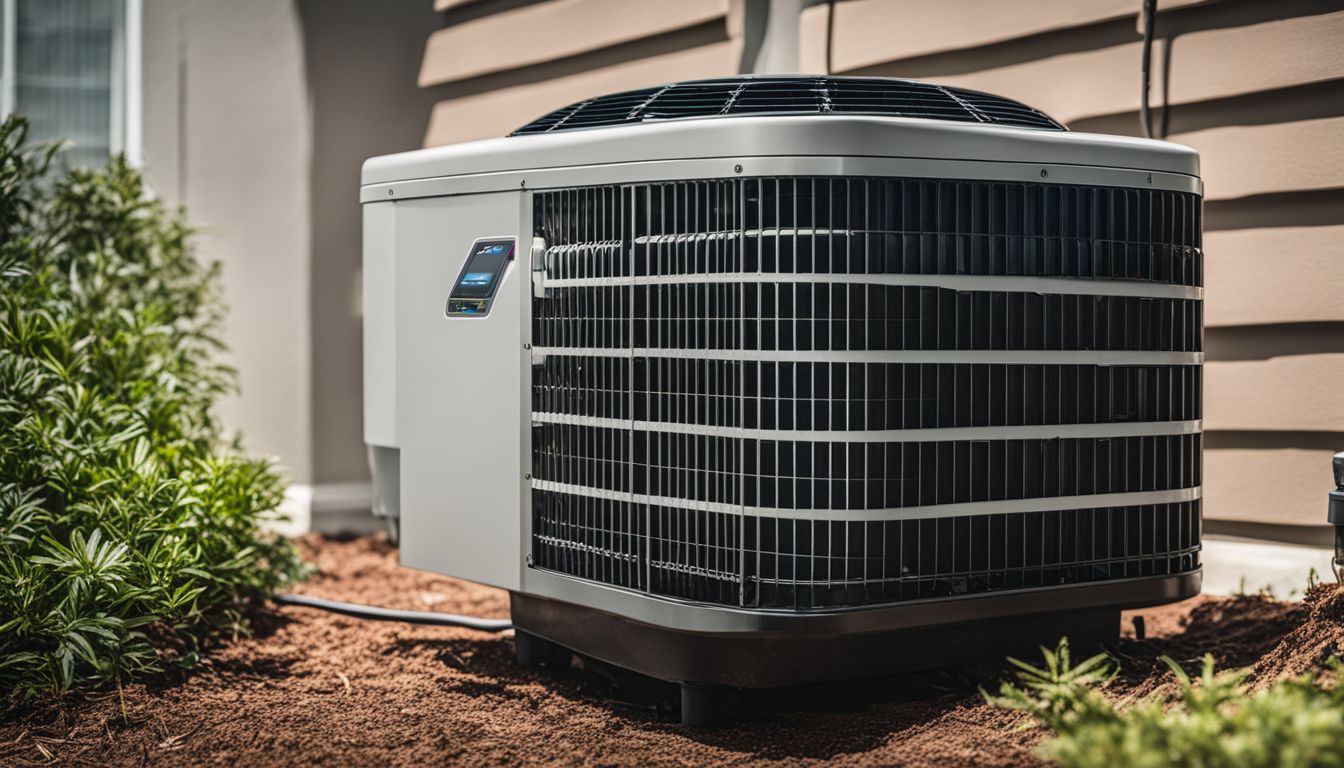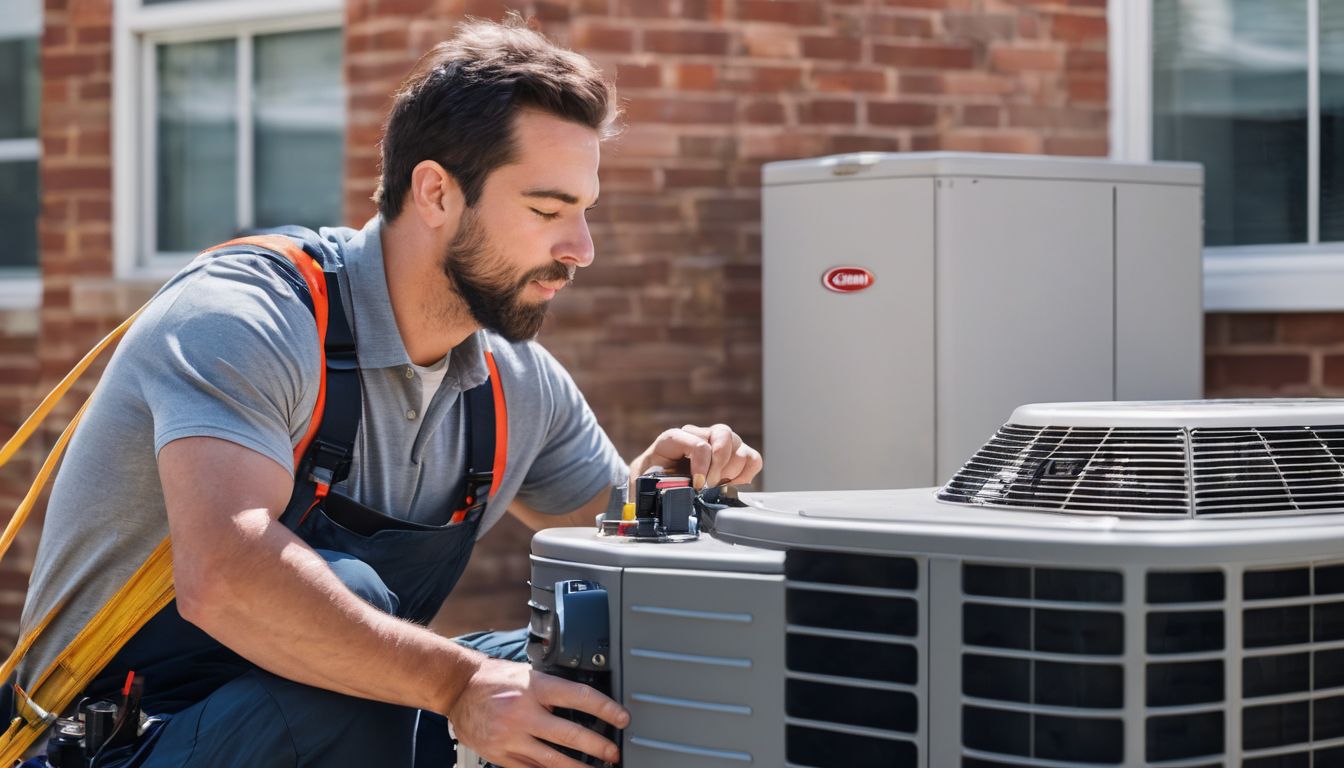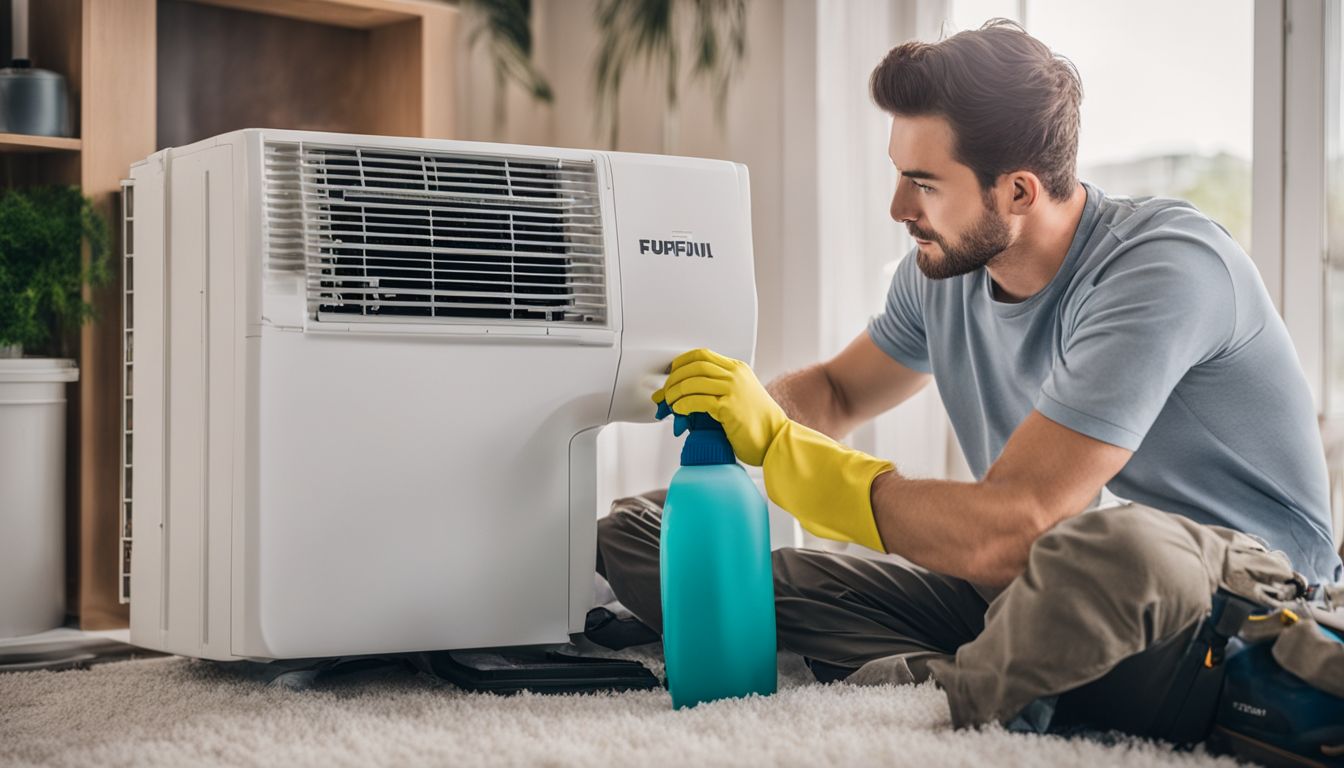As temperatures soar, the last thing you want is your AC unit breaking down from overuse. Did you know that a well-maintained air conditioner can last up to 15 years? This post will guide you through simple yet effective steps to decrease wear and tear on your HVAC system, ensuring it keeps you cool for years to come.
Discover how easy it is to protect your cooling companion with our tips!
Understanding the Lifespan of Air Conditioning Units
Air conditioning units, crucial for our comfort during warm seasons, typically have a life expectancy of about 15 to 20 years. Factors such as routine maintenance and the environment they operate in can influence this duration significantly.
Regular checks and preventative care boost efficiency and prevent breakdowns that could shorten their lifespan.
Keep in mind an improperly sized or installed HVAC unit may suffer from undue stress leading to frequent repairs. To avoid this, ensure your air conditioner matches the size of your space and is installed by certified professionals.
Such forward-thinking steps help maintain optimal performance over time, playing a key role in achieving the upper end of that 10 to 25-year service window expected from quality heating and cooling systems.
Essential Maintenance Practices for Your AC Unit
To ensure your air conditioning system operates at peak performance with minimal wear and tear, engaging in essential maintenance practices is crucial. These tasks are designed to maintain the efficiency of HVAC systems, prevent unexpected breakdowns, and support a prolonged service life for your unit.
Regularly Change Your Air Conditioner’s Filters
Keep your air conditioner running smoothly by replacing its filters regularly. This simple step is crucial as it not only maintains the efficiency of your HVAC system but also contributes to better indoor air quality.
A fresh filter allows your unit to breathe easier, preventing strain on the motor and reducing energy consumption significantly – by 5 to 15 per cent. Over time, dust and debris accumulate in filters, which can obstruct the airflow and diminish your system’s performance.
Ensure you check filters monthly, especially during peak usage periods like summer and winter when heating and cooling cycles are most frequent. If they’re dirty or clogged, swap them out for new ones without delay.
Not only does this routine maintenance save on utility bills, but it also extends the lifespan of your air conditioning system. Clean filters mean improved health benefits too; they trap particulate matter that could otherwise trigger allergies or asthma attacks within the household.
Clean the Vents
Begin the process of cleaning your vents by turning off your heating and air conditioning system. This ensures safety and prevents dust from being blown around while you work. Use a vacuum with a soft brush attachment to gently remove any visible dust or debris from the outside of the vent covers.
For more thorough cleaning, unscrew the vent covers and wash them with warm soapy water, drying them completely before putting them back in place.
Next, tackle the inside part of your vents using a microfiber cloth attached to a long-handled duster to reach deep within the ducts. Carefully wipe away any accumulated dust or dirt without pushing it further into the ductwork.
Maintaining clean vents supports energy efficiency by allowing air to flow freely, which helps prevent unnecessary strain on your AC unit’s compressor and other components – leading to less wear over time and potentially fewer heat-related illnesses from poor air quality in your home.
Schedule Duct Inspection and Cleaning
Get your ductwork checked and cleaned by a qualified technician to ensure the air flowing through your AC unit is not impeded. This preventative maintenance removes any potential blockages that might harm efficiency or lead to costly repairs down the line.
Technicians use specialised tools, such as a wet/dry vacuum, to thoroughly clear out dust, and debris and prevent mould growth in the ducts.
Having clean and clear air ducts contributes significantly to the overall performance of your home heating and cooling systems. It also helps avoid damage from corrosion or leaks within the ductwork.
Be proactive about scheduling these inspections; it’s an indispensable step towards fostering a long-lasting relationship with your air conditioners and furnaces alike.
Advanced Strategies for Reducing Wear and Tear
Delve deeper into innovative tactics to preserve your AC unit’s longevity, ensuring it operates smoothly for years to come.
Upgrade Your Thermostat
Invest in a smart thermostat to take control of your HVAC system and reduce strain on your air conditioning unit. These advanced devices automate temperature settings based on external conditions, ensuring your home stays comfortable without overworking the system.
Not only do you save wear and tear on your AC, but these upgrades can also lead to significant savings – up to 20-40% off monthly bills as highlighted by the U.S. Department of Energy.
Programmable thermostats allow you to set temperatures for different times of the day, helping maintain optimal comfort while avoiding unnecessary cooling when no one is home. This focused approach promotes energy efficiency and prolongs the life expectancy of your heating, ventilation, and air conditioning systems by minimising excessive operation.
Make this wise switch and experience both an immediate reduction in energy use and long-term benefits for your AC unit’s durability.
Seal Air Leaks
Seal air leaks to keep your home comfortable and maximise the efficiency of your AC unit. Check windows, doors, and other openings for gaps that let cool air escape and warm air enter.
Use weatherstripping or caulk to seal these areas tightly. This not only prevents drafts but also reduces the load on your AC by maintaining a consistent temperature.
Incorporate insulation into attics and basements as part of an effective sealing strategy. Properly insulating these spaces significantly cuts down on heat exchange between your home’s interior and exterior.
Pay special attention to the higher and lower levels of your building where most leaks occur, ensuring energy isn’t wasted through unseen cracks or holes. With fewer air leaks, you help maintain optimal performance from both traditional systems like boilers as well as modern solutions such as heat pumps.
Schedule a Regular Tune-Up
Book a regular tune-up for your AC unit to keep it running at peak efficiency. Opting for professional maintenance by NATE-certified technicians can catch potential problems before they turn into costly repairs.
Make this a habit twice yearly, coinciding with the start of heating and cooling seasons, to ensure your system functions optimally. These preventative measures don’t just prevent breakdowns; they also lead to savings by reducing the need for future repairs.
Choose experts who perform comprehensive checks on safety valves, clean outdoor units thoroughly, and conduct energy audits if necessary. Regular visits from qualified professionals will prolong the life of your air conditioning system by dealing with wear and tear early on.
Trust in their skills to maintain air quality through clean vents and filters while keeping your unit energy-efficient year-round.
Conclusion

Maintaining your AC unit efficiently ensures a longer lifespan and improved air quality in your home. Simple actions like regularly changing air filters and cleaning vents make a significant difference.
Have you sealed any air leaks lately, or scheduled your annual AC tune-up? These steps not only prevent wear and tear but also save energy costs. Dive into the journey of preserving your AC with the easy, practical methods we’ve outlined.
Remember, consistent care for your air conditioning system is the cornerstone for a cool, comfortable home environment all year round.
FAQs
1. How often should I replace my air filter to protect my AC unit?
Replace your air filter regularly, about every three months, to prevent dust build-up and ensure your AC unit runs efficiently.
2. What’s the best way to keep my outside air conditioning unit in good condition?
Keep the area around your outside air conditioning unit clear from debris and gently clean the fins with a wet-dry vacuum to reduce wear and tear.
3. Can smart thermostats help extend the life of my AC system?
Yes, installing smart thermostats can help manage your home’s temperature more effectively and reduce the workload on your AC system.
4. Should I close some of my air vents for better performance?
No, keep all air vents open to maintain proper airflow throughout your home; blocking vents can cause strain on the AC unit.
5. Is it important to check for blockages in areas like chimneys when considering my AC’s efficiency?
Yes, ensure spaces like chimneys are clear as blocked passageways could affect your AC’s ability to circulate cool air properly.





